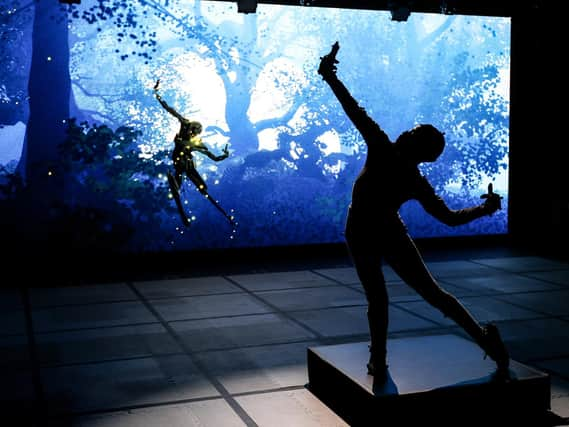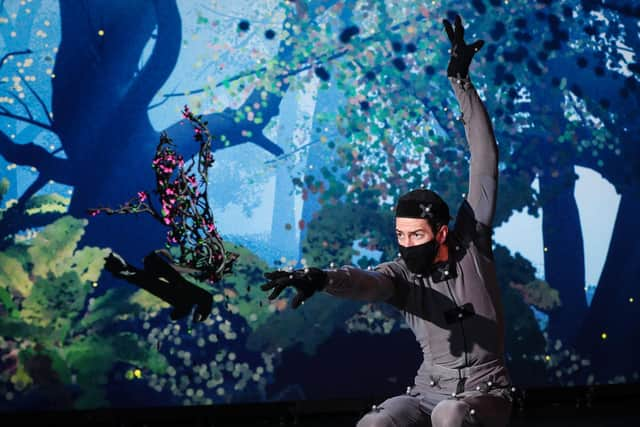REVIEW: RSC's experimental Dream gives an intriguing glimpse into the future of live entertainment


Few plays have been more important to the RSC than A Midsummer Night's Dream. Peter Brook's 1970 production remains a landmark moment in the development of modern theatre. Tim Supple's version was startling and revelatory in its own way: it incorporated six Indian languages and brought a sense of transcendence to the Swan night after night in 2006, and remains perhaps the most acclaimed show staged at the venue this century. In 2016, under the direction of Erica Whyman, groups of amateur actors joined the professionals on stage in what was called "a play for the nation", a welcome and necessary move from a company that can still be regarded as somewhat elitist. And now it provides the inspiration for Dream, which, in its own way, may prove as significant as any of its predecessors.
A measure of its innovation is that the word does not yet exist to describe it. It is a live online broadcast featuring human performers transported to a computer-generated world partly controlled by the viewer; most of the music is prerecorded but some is played live. It's part theatre, part animation, part game; it feels excitingly like an experiment, but far warmer than that sounds.
Advertisement
Hide AdAdvertisement
Hide AdDream is not a full production of Shakespeare's magical masterpiece; rather, it's a 30-minute work following the mischievous Puck and associated sprites. The story is slight, to say the least, but there is just enough of one, and there is genuine drama and wonder here. The audience contributes by launching fireflies into the world to light Puck's way; later, each person watching is granted a seed with which to regrow the storm-ravaged forest.


It is all done with great enthusiasm and charm: although rendered as a disjointed and oddly grey creature, EM Williams brings an enticing adventure and danger to her Puck, while Jesper Nordin and Esa-Pekka Salonen's music and soundscapes, performed by the Philharmonia Orchestra, are as important as the bewitching and beautiful visuals in the creation of the world. There's also Nick Cave, of all people, whose gives a rich and gently portentous tone to the Voice of the Forest.
The overall effect is strange, in the best sense: it's different, new. Perhaps most notably, it also seems like the start of something. Were it not for the pandemic, it would have been staged in some form in Stratford last year, but it seems like adversity has helped it find its rightful home, in a virtual place.
The project team, led by Sarah Ellis, the RSC's director of digital development, foresee a time when works like Dream become an integral part of the cultural landscape, a way of doing theatre that attracts new audiences and deepens the experiences of existing ones. That time may just be dawning: thousands are logging in to Dream every night, with reports of families enjoying it across the generations, remote from each other but sharing in the same piece. It is also good to see the RSC working on this with the Manchester International Festival, creative studio Marshmallow Laser Feast and other organisations; such collaboration may be a necessary part of the future too. The action is really all taking place in a small studio in Portsmouth; that it feels so vast and engrossing is a tribute to all involved.
Advertisement
Hide AdAdvertisement
Hide AdDream may not feel like a complete work in its own right, but that is to be expected. Instead, rather like its antecedents and its audience, it is perhaps lighting the way and planting seeds for the theatre of tomorrow.
* Dream runs until Saturday March 20. Visit dream.online for details.